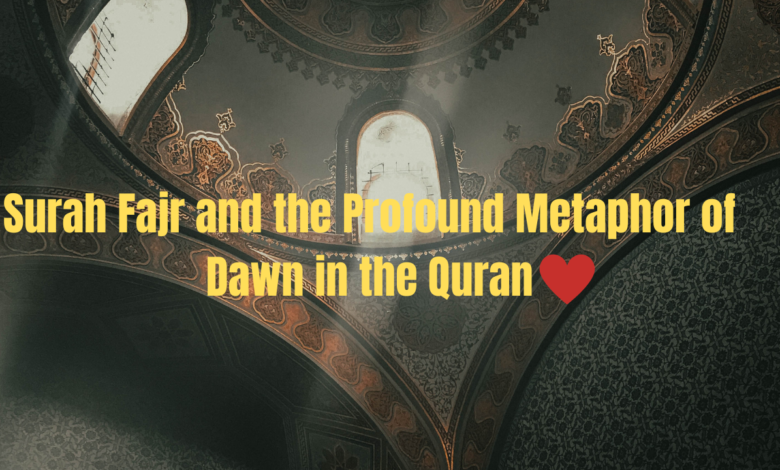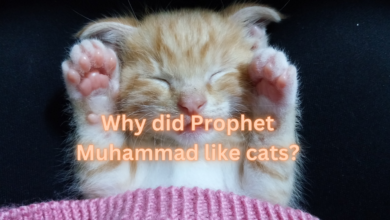Surah Fajr and the Profound Metaphor of Dawn in the Quran

Introduction
The Quran, the holy book of Islam, is a divine revelation that holds deep spiritual meanings and timeless wisdom. Throughout its verses, the Quran employs a rich tapestry of metaphors to communicate profound truths and awaken the hearts of its readers. One such captivating metaphor is the concept of “dawn,” which is eloquently exemplified in Surah Fajr (Chapter 89). This article explores the Surah Fajr and the metaphor of dawn as a symbol of hope, renewal, and spiritual awakening in the Quran.
Surah Fajr: A Brief Overview
Surah Fajr is the eighty-ninth chapter of the Quran, consisting of 30 verses. It was revealed in Makkah during a crucial period in Islamic history when the message of Islam was met with resistance and persecution from the disbelievers. The Surah draws its name from the word “Fajr,” which translates to “dawn” or “daybreak.”
Metaphor of Dawn in the Quran
Dawn is a time of transition, when the darkness of the night is dispersed by the gentle illumination of the rising sun. Symbolically, it represents the transition from ignorance to knowledge, despair to hope, and oppression to liberation. In the Quran, the concept of dawn is used as a metaphor to reflect various profound themes:
The Promise of Resurrection: Just as the dawn heralds the beginning of a new day after the darkness of the night, the Quran uses dawn as a metaphor for the Day of Resurrection when the deceased will rise from their graves to face their final judgment.
Surah Fajr, verse 27-30: “O soul at peace, return to your Lord, well-pleased and pleasing [Him], and enter among My [righteous] servants. And enter My Paradise.”
Spiritual Awakening and Guidance: Dawn also symbolizes the enlightenment of the soul through divine guidance. It calls upon humanity to embrace the light of truth, recognize their purpose, and follow the path set forth by Allah.
Surah Fajr, verse 28-30: “Enter among My [righteous] servants. And enter My Paradise.”
Warning against Ignorance and Disobedience: Just as the dawn signifies the end of the period of rest and calls people to wake up and start their day, the metaphor of dawn in the Quran serves as a warning against persistent ignorance and defiance of divine guidance.
Surah Fajr, verse 10-14: “But there came after them successors who neglected prayer and pursued desires; so, they are going to meet evil – except those who repent, believe and do righteousness; for those will enter Paradise and will not be wronged at all.”
Punishment for Transgressors: Dawn also implies the imminent consequences for those who continue to reject faith and oppress the believers. Just as darkness gives way to light, the Quran warns that the dawn of justice will eventually prevail.
Surah Fajr, verse 11-12: “But there came after them successors who neglected prayer and pursued desires; so, they are going to meet evil.”
Conclusion
Surah Fajr and the metaphor of dawn in the Quran beautifully portray the themes of hope, renewal, and spiritual awakening. The concept of dawn serves as a reminder that no matter how dark the night may be, the light of guidance and mercy will eventually shine forth. It calls upon individuals to embrace the truth, seek divine guidance, and follow the path of righteousness. Moreover, it cautions against persisting in ignorance and disobedience, as it leads to eventual consequences.
As readers of the Quran, reflecting on the metaphor of dawn in Surah Fajr can inspire us to seek the light of knowledge, renew our faith, and strive for righteousness in our daily lives. Just as the dawn heralds the beginning of a new day, the metaphor of dawn in the Quran reminds us of the eternal promise of a new and better life beyond this transient world.






